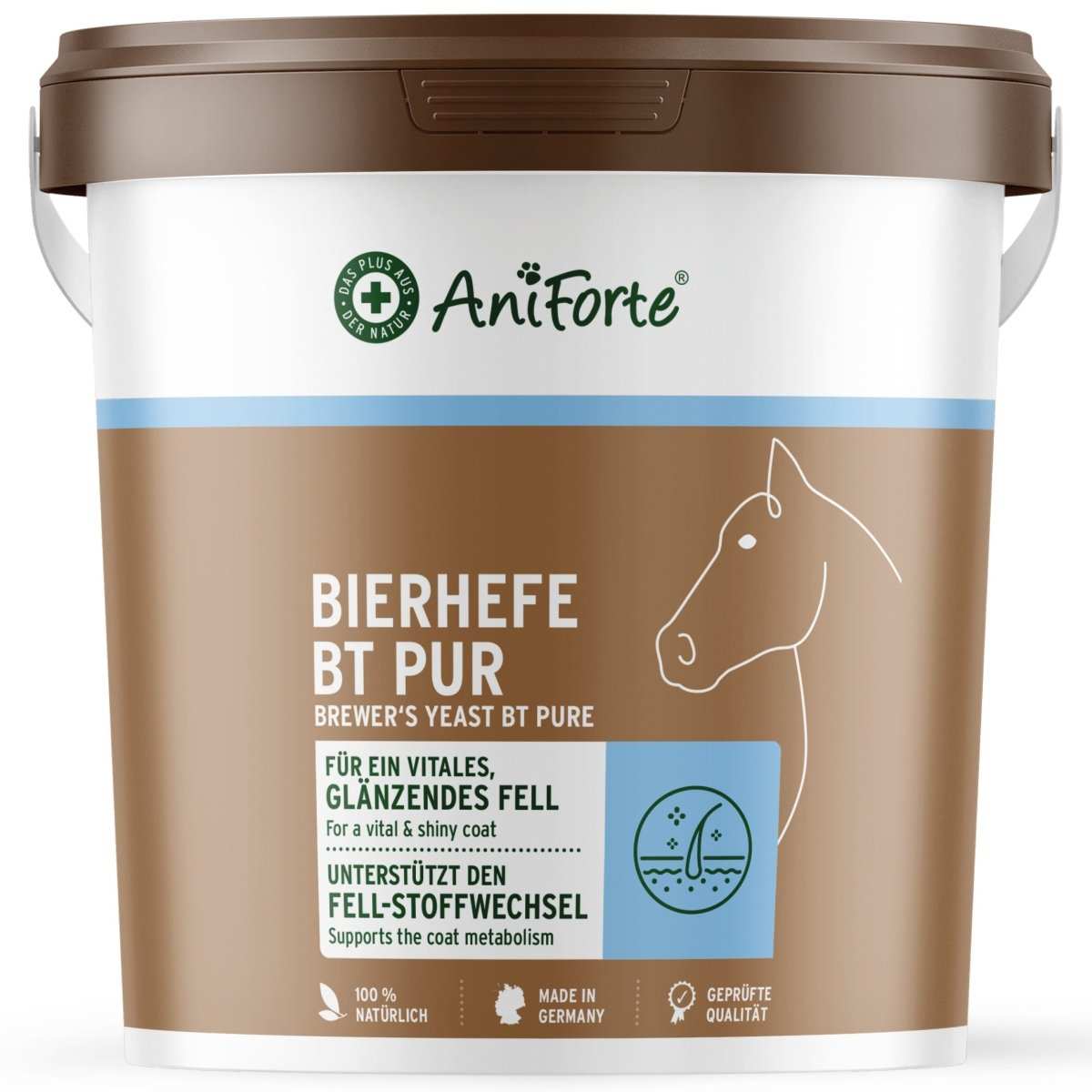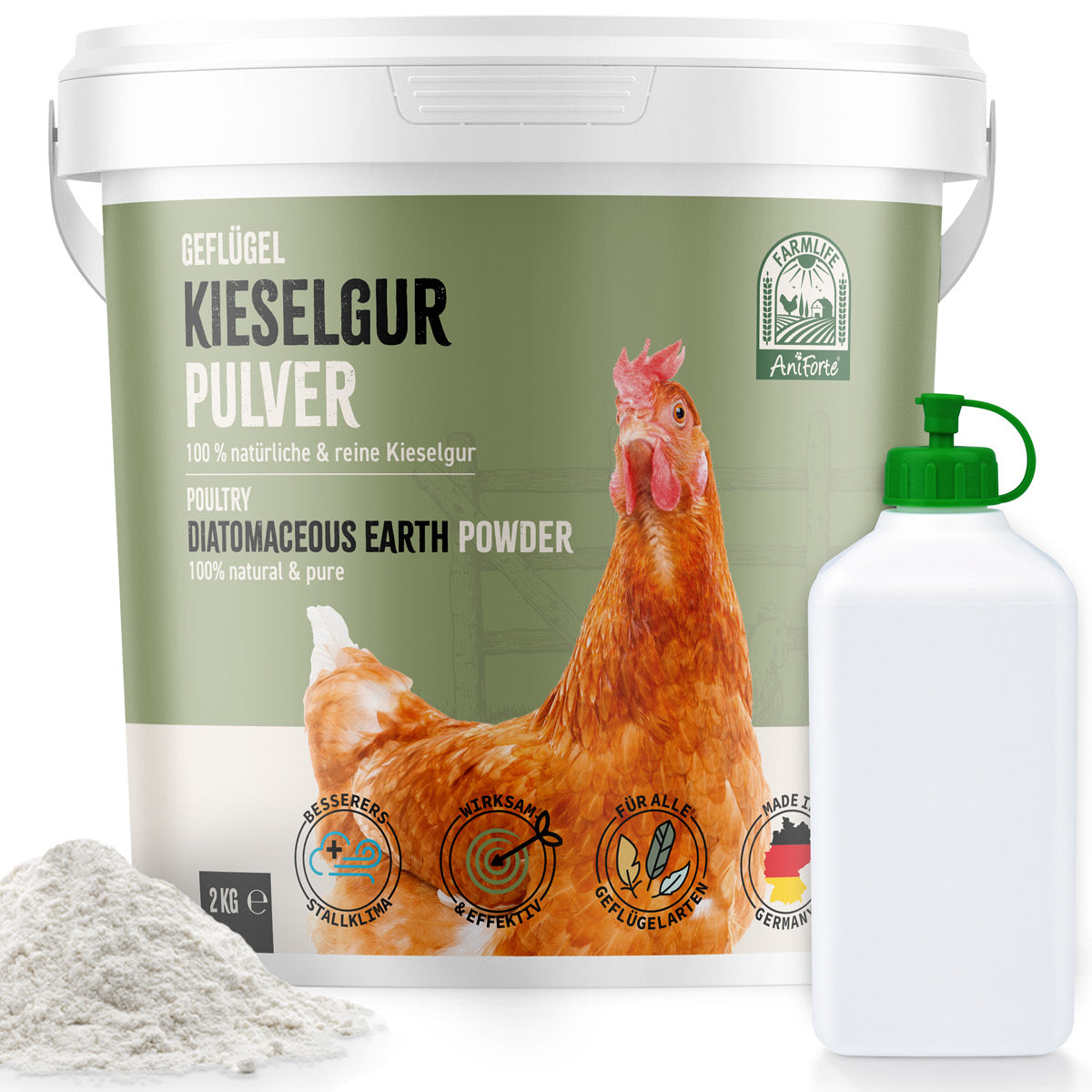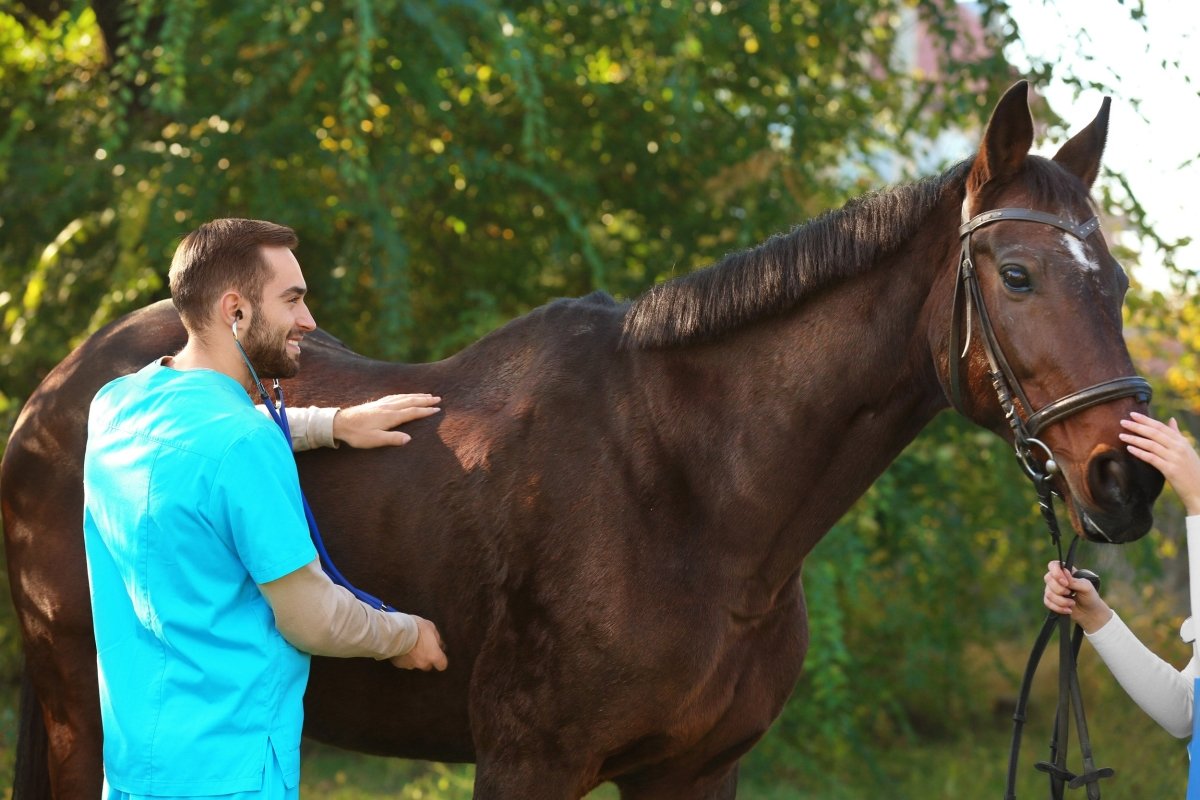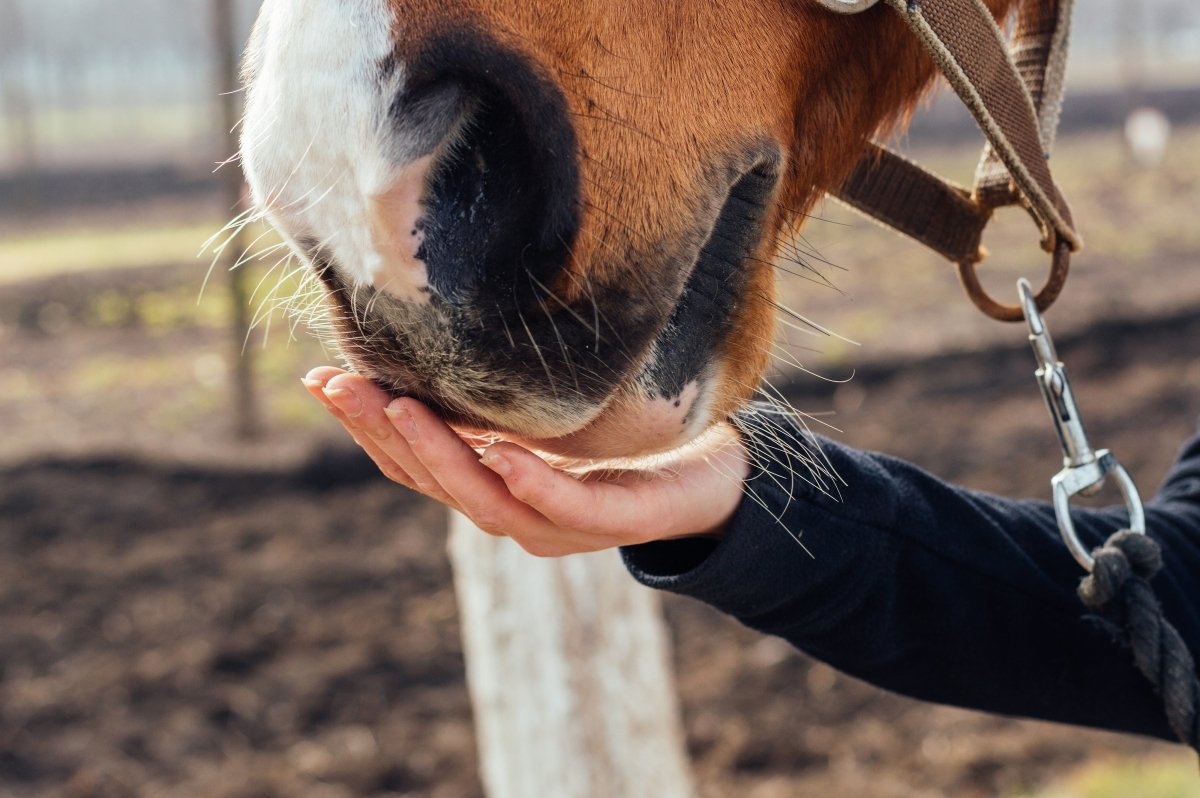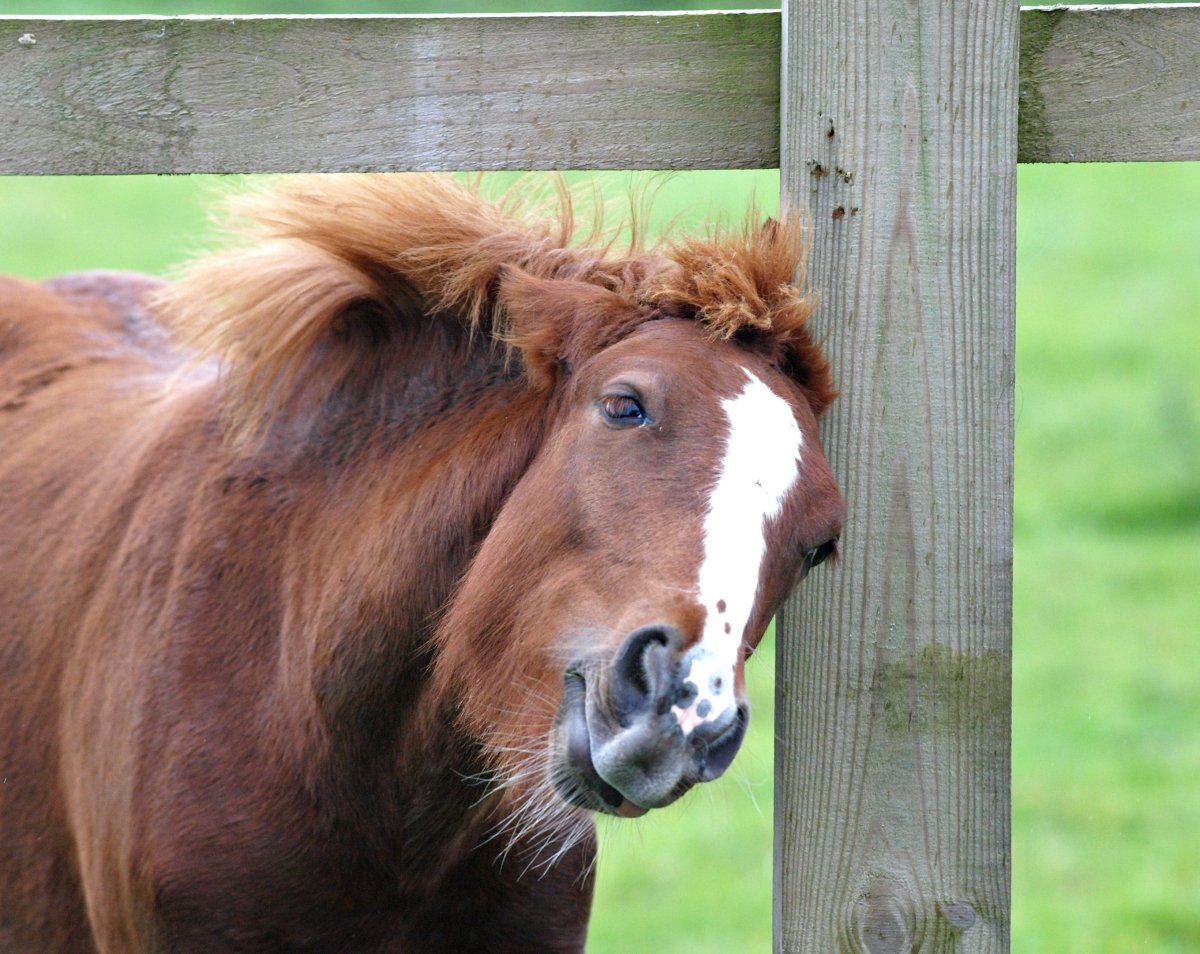If your horse suffers from diarrhea, it is often not easy to find the cause. Owners are often at a loss, especially if the diarrhea occurs suddenly and without a previous change in feed, medication or severe temperature fluctuations. In fact, there are a whole range of triggers and causes that can lead to diarrhea in horses. These can occur in connection with an illness or independently of it.
In this article, you will find out when we start talking about diarrhea in horses, what the possible causes of diarrhea are and how you can treat and prevent it together with your vet. As feeding is known to be the most common cause of diarrhoea in horses, AniForte offers natural and healthy HayCobs treats for horses - including, for example, our popular AniForte Vitality Cobs Stomach, which help to support a healthy stomach lining in horses.
Recognizing diarrhoea in horses: Accompanying symptoms & co.
Diarrhea in horses should always be taken seriously and should be treated professionally by a vet, as in the worst case it could lead to dehydration due to excessive water loss. In addition to a change in the liquid consistency of the droppings, diarrhea in horses is when the droppings are significantly more frequent - in some cases even uncontrolled.
In addition to a mushy or liquid consistency, the smell can also change for the worse. It is also common for the color to become either darker or lighter. In order to determine the exact cause of diarrhea in horses, the vet will examine a sample of your horse's feces. The external appearance, such as the color, could also be a sign of a certain illness; blood in the diarrhea is an indication of an internal injury or inflammation in the intestinal area, for example.
A horse with diarrhea also often shows accompanying symptoms such as increased water intake or fever. However, a horse with diarrhea does not "only" lose water due to the frequent bowel movements - the salt and nutrient balance also changes, which leads to a weakening of the animal. Horses that have been suffering from diarrhea for a long time often appear apathetic and should be taken to the vet as soon as possible; during this time, make sure that fresh water is always within reach and that your horse is fully nourished.
These causes can lead to diarrhea in horses
Your horse has diarrhea. As already mentioned, there are several possible causes. For this reason, you should never try to get a horse's diarrhea under control with medication or home remedies on your own or without consulting your vet; it is better to ensure a healthy, stomach-friendly diet in advance and - if your horse does have diarrhea - make sure it has sufficient water intake. You can now find out what the causes of diarrhea in horses might be.
Diarrhea in horses, including foals: Harmless or dangerous?
Foal diarrhea is quite common and in most cases no cause for panic. Diarrhea in horses usually occurs between the 1st and 2nd week of life; the cause is stress due to a changed environment, which changes the pH value in the foal's intestines - bacteria that are absorbed by drinking the mother's milk now have the opportunity to colonize the intestines; this often leads to diarrhea in horses, but it is usually harmless.
As the foal's entire intestinal flora changes considerably in the first few weeks and becomes increasingly similar to that of an adult horse, foals are often affected by diarrhea during this time. This usually only lasts a few days until the dam's first heat. In order not to confuse this harmless change with pathological diarrhea in horses, you should keep a close eye on the foal during this time and measure its temperature regularly. If this rises to over 38.6 degrees Celsius or the foal appears apathetic, illnesses such as viral or bacterial infections may also be responsible for the diarrhea.
Feed as the most common trigger for diarrhea in horses
Incorrect feeding or changing the horse's feed too quickly are among the most common causes of diarrhea in horses. As horses have a very sensitive digestive system, you should discuss the feeding of natural supplements for horse stomach & intestines with your vet in order to protect your horse from diarrhea and keep the intestinal flora healthy. If your horse already has diarrhea, you should show it to a vet now at the latest. Below we would like to introduce you to possible feed-related triggers that can lead to diarrhea in horses:
- Rapid change of feed
- Old or spoiled feed
- Poor feed quality
- Grazing too quickly / too much grass
- One-sided feeding with grains, oils, concentrates or fresh feed
- Too much sugar, fats or proteins
A varied and natural diet that provides all the necessary nutrients in the right quantities is essential to strengthenyour horse's immune system . Poor quality feed and an unbalanced diet can quickly lead to diarrhea in horses. If your horse has always been doing well, first consider whether anything has changed recently, whether your horse has been put out to pasture too quickly and whether it is getting all the nutrients it needs in the right quality. Although it sounds strange, grass that is too rich in nutrients can also lead to diarrhea in horses.
Pathological causes of diarrhea in horses: parasites, viruses & co.
While you can change the wrong feed yourself and help your animal to improve, pathological causes of diarrhea in horses are unfortunately also possible and should always be looked at by a vet. Bacteria, viruses or parasites in horses often colonize the gastrointestinal tract and cause infections - this can happen particularly quickly in summer, for example, due to stale water.
Coli bacteria, salmonella, rota and adenoviruses as well as parasitic triggers such as coccidia or even worms are particularly common causes of diarrhea in horses, which are identified by the vet during a faecal examination and treated with appropriate medication.
Diseases of the internal organs are also possible causes of gastrointestinal problems such as diarrhea in horses; the pancreas is particularly frequently affected, but often also the liver. If blood is also visible in the diarrhea, it may be an inflammation of these organs or the intestinal region. Eating sand or ingesting other foreign bodies and toxins can also lead to injuries in the gastrointestinal tract and bloody diarrhea in horses.
Diarrhea in horses due to stress
Many horses react very sensitively to unfamiliar or stressful situations; a change in mood can quickly manifest itself physically, for example with diarrhea in the horse. If the stress is short-lived, the horse's diarrhea should soon disappear - this can be the case during transport, for example. Horses that cannot be calmed or trained to become accustomed to such situations can be relaxed with natural feed supplements to calm horses in consultation with the vet. Nevertheless, make sure that your horse is not permanently exposed to stressful situations - rivalry with other horses in the pasture, for example, would be one of these triggers that not only physically stress your horse due to diarrhea, but can also lead to psychological problems in the long term.
Strengthen intestinal flora, prevent diarrhea in horses with AniForte
Diarrhea in horses can have many different triggers, which certainly cannot be completely avoided. Nevertheless, there are things you can do to support your horse's intestinal flora and immune system and prevent diseases such as viral or bacterial infections and parasitic infestations. In addition to a balanced and natural diet, regular and thorough cleaning and care of the stable and horse and avoiding stress, certain feed supplements are very suitable for supporting your horse's vitality, immune system and intestinal function.
To prevent diarrhea in horses, for example, you can use our natural WermiX herbal mixture. With ingredients such as thyme, wormwood, mugwort and sage, this supports the defenses of the gastrointestinal tract and a normal gastric mucosa. To maintain the immune system and the natural intestinal flora, we recommend Egyptian black cumin seeds, which provide important nutrients and prevent diarrhea in horses.

